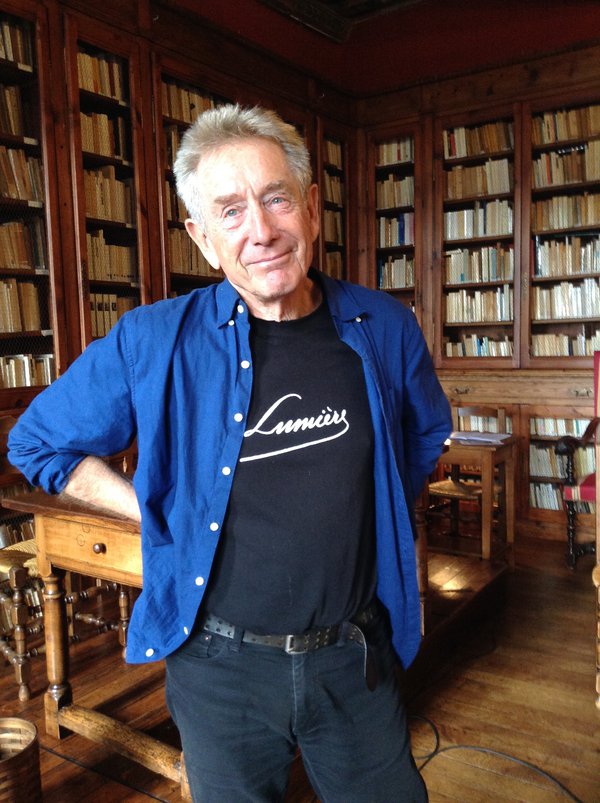
Gardener Gilles Clément was born in 1943 in Argenton sur Creuse. Trained as a horticultural engineer and landscaper, the entomologist, botanist, writer and artist has designed and created parks, gardens, and public and private spaces since 1972. He also teaches at the Versailles National School of Landscape Architecture (ENSP), cradle of the renewal of French landscaping culture of which he has been one of the leading actors.
The Garden in Motion
In La Vallée, his own garden in Creuse, Clément learned about the richness of wasteland, the pointlessness of seeking total control over nature – “there is nothing we can do against the wind” – and the point of supporting rather than coercing it. He defined the concept of “Garden in Motion” as a “state of mind” that “drives the gardener to watch more, and garden less”, and applied it for the first time in a public space on a plot of land in Parc André Citroën in Paris. In 1991, Sens & Tonka published his book “Garden in Motion”, which has been reissued many times since. He started producing gardens based on this management model, including those at the Jules Rieffel Agricultural School in Saint Herblain.
In France, Clément has worked on major projects such as The Mediterranean Gardens in Domaine du Rayol (Var), Parc Matisse in Lille, Parc Oriental de Maulévrier in Maine-et-Loire, the gardens at Abbaye de Valloires in Picardie, the gardens at Château de Blois, the gardens of the Arche de la Défense, and the Quai Branly Museum gardens in Paris. He has travelled, observed, studied and worked all over the world in gardens bearing such wonderful names as Arbre-Ballon (“Tree-Ball”) in Brussels, Ti-Jean Gardens in Réunion, and the Pamplemousses garden in Mauritius.
The Planetary Garden
A topic outlined in 1996 in his novel-essay “Thomas et le Voyageur” (Albin-Michel), “The Planetary Garden” was the subject of a major exhibition at the Great Hall in Villette, Paris, in 1999-2000. Clément noted the finiteness of life and the limits of the garden-related biosphere. “This observation profoundly changes our relationship with nature and reminds us (passengers on this Earth) of our role as protectors of a life that has become rare and fragile, and our role as gardeners.” The exhibition was a huge success.

The Third Landscape Manifesto
With the “Third-Landscape Manifesto”, published in 2004 and translated into many languages, Clément’s reputation extended far beyond France’s borders. A concept developed while assessing the landscape of the Vassivière site in Limousin, the “Third-Landscape – an ‘undetermined’ fragment of the planetary garden – denotes the sum of places where men have left the development of the landscape to nature alone. It relates to neglected urban or rural areas, places in transition, wasteland, etc.” These unused places host biological diversity that has been chased away everywhere else, and have become invaluable for that very reason. An emblematic work by Clément, the Third-Landscape Garden, made up of plants that require no assistance, grows freely on the roof of the Saint-Nazaire submarine base.
Collège de France and Cerisy
Clément’s practice and theoretical work reinvent our relationship with nature, our perception of its dynamics and our own action within it. In 2011-2012, he was invited to take up the Chair of Artistic Creation at Collège de France. His teachings focused on “Gardens, the Landscape and Natural Engineering”. Gradually he stopped producing to turn to design and writing, publishing more than thirty books, essays, stories and novels. Two conferences were organised in Cerisy based on his works, one on “Gardens in Politics” in 2016, the other on “Planetary Intermingling” in 2018.
Clément has gained international recognition thanks to his experience and reflections on how to exploit diversity without destroying it.
Gardens of resistance
Clément’s reputation has had knock-on effects. In 2011, Clément came up with the idea of a school for the “recognition of diversity in the city”, which led to the first Planetary Garden School in Essonne. Other schools then opened under his patronage. Clément is also the President of Association PEROU (Human Resources Exploration Centre), an action- research laboratory on the hostile city, which supports and defends migrants, Romani people and people in need.
Through the concept of “symbiotic man”, Clément addresses the issue of recycling – how do we give back to the environment the energy we take from it without invalidating it? He sees the garden as a resistance project that short-circuits mass distribution and overconsumption. He supports organic farming, non-market community life and other social experiments carried out by the people who occupied the land in Notre-Dame-des-Landes, near Nantes, and who were opposed to the Grand Ouest Airport project, which was ultimately abandoned.
Reclaiming ground
From Solac in Herzegovina to Lausanne in Le Vallon, via Lecce in Apulia, Clément has developed the practice of reclaiming grounds, which consists of acting collectively to return neglected private grounds and public spaces, which host great biodiversity, to the public.
Lorette Coen
curator
List of achievements and complete bibliography on the website: www.gillesclement.com